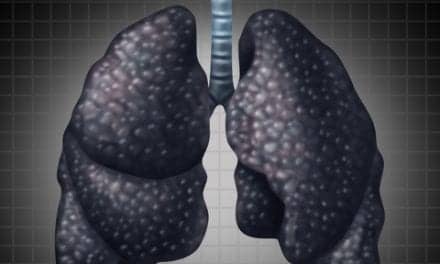The presence of swollen lymph nodes in patients with idiopathic pulmonary fibrosis (IPF) at the time of their diagnosis can be a predictor of poor prognosis, associated with stronger disease severity and lower survival, a study suggests.
Patients with enlarged lymph nodes, specifically lymph nodes close to the lung, have mortality rates more than twice as high as those with normal-size lymph nodes. Lymph node enlargement may be a useful predictor to inform doctors and patients about the clinical course the disease is likely to take, and help decide early on about the most appropriate treatments.
The study, “Impact of mediastinal lymph node enlargement on the prognosis of idiopathic pulmonary fibrosis,” was published in the journal PLOS ONE.
One of the major obstacles in predicting the clinical course of IPF and response to therapy, as well as selecting the best available treatments for patients, is the lack of known, reliable prognostic factors.










